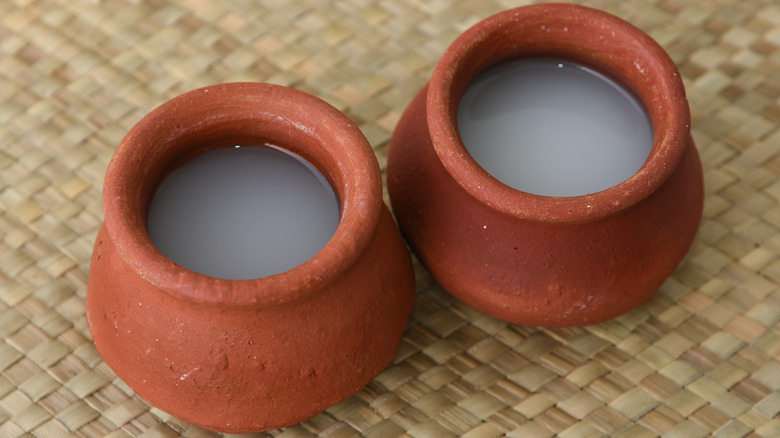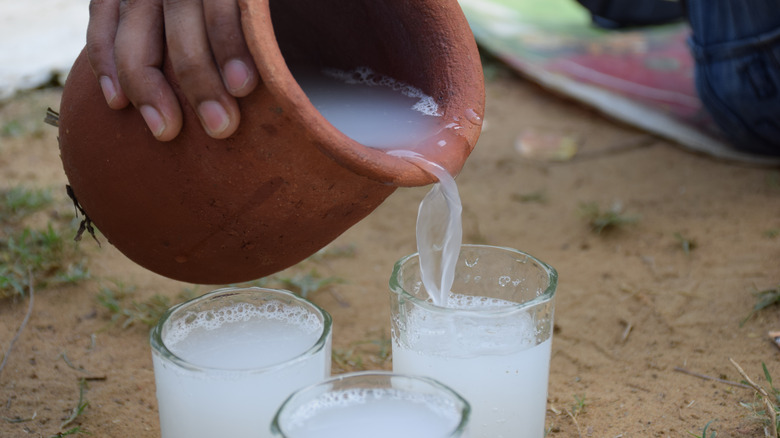Here's Why Palm Wine Can Be So Hard To Find
Thinking of alcohol and palm trees brings to mind images of swaying hammocks underneath green fronds on a white sand beach, or maybe any number of Corona beer commercials. But how about alcohol made from palm trees?
That's right, palm wine is a thing. But if you live outside of parts of Africa, Asia, South America, the Caribbean, and Micronesia you probably haven't seen any on your liquor store shelves.
Low demand in the United States and Europe is partly to blame for palm wine being hard to find here, but it's not the only reason. According to Atlas Obscura, there's a dearth of knowledgeable tree tappers out there, and if whole trees are cut down to make the wine, the process can become quite "resource-intense." Plus, the drink destabilizes into vinegar within a matter of days.
"At small scale, traditional practices and local consumption are fine — enjoying the sweet product of a few locally fallen trees," according to Onye Ahanotu, the founder of Ikenga Wines, a California-based producer of synthetically derived sparkling palm wine. "The industrial agriculture scale is a different case, becoming a serious environmental issue."
What is palm wine?
Palm wine is a "sweet, milky, effervescent" alcoholic beverage derived from the sap of different palm species, according to ScienceDirect. Although it's often bottled to drink, you can also use it to make vindaloo.
In Costa Rica, the wine comes in sweet, medium, and strong categories and is produced during the dry season from December to May, according to Vino De Coyol, which sells the bottled product online and delivers globally, including to the United States.
The uninitiated may want to take note. According to their website, Vino de Coyol's palm wine "comes with a severe hangover." But the way the company describes that state doesn't actually sound too bad. Legend has is that "if you spend the following day in the sun after consumption, you may get ... slightly drunk and potentially delirious all over again."
Ghana-headquartered food processing company Nkulenu Industries describes the taste of its palm wine as "smooth and deeply satisfying," while Atlas Obscura calls palm wine from Nigerian producer PAMII "light and breezy, a cool, bubbly alternative to beer on a summer day." But the only way to truly know how you feel about palm wine is to try some for yourself — that is, if you can get your hands on it.

